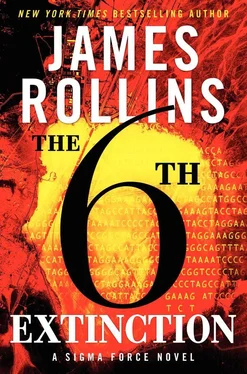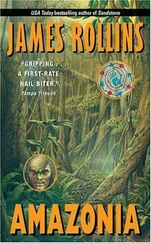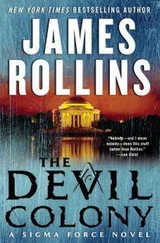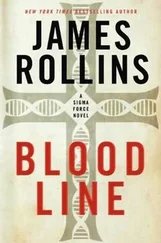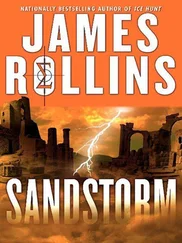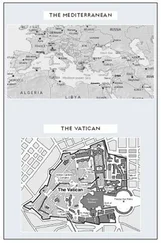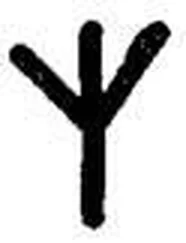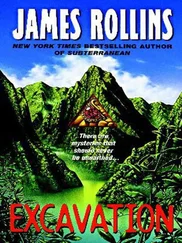“Strutting the runway, I see.” This came over the voice-actuated radio fitted into their air masks.
She turned to see Gunnery Sergeant Drake salute her, equally encased in what was euphemistically called a bunny suit.
“How could I not?” she responded back. “Especially when I’m wearing the height of fashion.”
She tried to sound light, but it came out more doleful to her ear.
“You’ll be fine,” Drake said, reaching to give her a pat on the shoulder.
She shied away, fearful of ripping something.
“The suits are tougher than they look,” Lisa assured her.
The woman’s brother, Josh, stood behind her, also suited up. Another two Marines would be joining them in this expedition, but in her nervousness, she had already forgotten their names.
The radio gave a burst of digital noise, then a new voice intruded. “Transport’s ready to move you all out.”
It was Director Crowe. He was ten miles away, back at the Marine base, overseeing this mission and coordinating the emergency response teams around the region.
His other duty — and an important one — was to pet-sit Nikko.
She already missed the husky. His absence left her feeling unbalanced, but no one made biohazard suits for dogs.
“How’s the video feed from the cameras?” Lisa asked, waving a hand in front of her face.
“Perfect,” Painter replied. “With the satellite connection, I should be able to watch over your shoulders as you proceed. So be careful out there. Follow proper protocols and avoid any unnecessary risks.”
“Yes, Dad,” Josh mumbled under his breath, but it still came through clearly over their sensitive radios.
Painter ignored him and continued. “So far the margins of the hot zone seem to be remaining stable, but we don’t know what other dangers are out there.”
Jenna stared through the translucent walls of the tent, thinking about where they were going. The quarantine border was a mile off. The toxic gas had finally reached its maximum spread in the last few hours, settling to the ground. Chemical monitoring stations ringed the area, watching in case the winds shifted and stirred up the dirt and sand.
Their goal — ground zero of the blast site — was twenty miles off.
At this point, no one knew if whatever broke containment at the base had been neutralized. She tried to imagine anything surviving both the heat of the explosion and that toxic cloud.
She shivered in her suit at the very thought.
Their mission was simple enough: Collect samples, survey the damage, and look for any clues to what happened.
Painter had encouraged her to stay at the Marine base, to remotely observe the excursion into the hot zone alongside him. But she had always been a boots-on-the-ground sort of girl. It was why she had joined the park rangers, to get her hands dirty.
She had also insisted on coming along for another reason. A nagging worry had kept her up most of the night, tossing and turning: If I had gotten to the base earlier, could I have done something to stop all of this?
Perhaps it was a foolish conceit, born more of pride than reality, but she could not shake it. Especially after learning over thirty people had lost their lives at the station. As a park ranger, with a sworn duty to uphold the law, she refused to be sidelined in this investigation.
Not on my home turf .
“Okay, guys and gals,” Drake said, leading the way, “let’s mount up.”
Jenna followed with the others, shifting the shoulder harness to better balance her tanks. It was already getting warm inside her suit. They exited the tent, like a group of astronauts stepping out onto an alien landscape. She recalled the tourist yesterday claiming how Mono Lake looked like the surface of Mars.
And here I am now… further proving his point .
Outside, a green military Hummer stood parked on the road heading into the hot zone. The vehicle had been configured as a troop carrier, with a crew cab in front and an open bed in the back with bench seats. One of their Marine escorts — Lance Corporal Schmitt, she suddenly recalled — climbed behind the wheel. The rest of them were assisted into the rear bed.
Once they were all seated, Drake patted his gloved palm on the cab. “All set, Schmitty.”
The engine coughed to life and rumbled. Then they were moving, climbing toward the border of the quarantine zone. Jenna swallowed hard and kept checking the sealed zippers on her suit.
Lisa sat next to her. “Shouldn’t be much to worry about. The majority of the toxin has settled and is rapidly losing potency.”
Still, Jenna felt little relief, especially after seeing the cloud of dust kicked up by the wide tires over the gravel road. She fought to even her breathing, to preserve her oxygen supply. They had additional tanks loaded on board, but the goal was not to have to switch them out in the hot zone if possible.
After a couple of minutes, Lance Corporal Schmitt tapped his horn and pointed an arm out the open window.
A waist-high cylinder — one of the chemical monitors — sat roadside. A tall antenna sprouted from its top, along with a three-cup anemometer used to gauge wind speeds. Thankfully the small vane remained perfectly still.
Drake eyeballed it as the vehicle trundled past the marker. “Kiss the clean air good-bye, folks.”
They were entering the hot zone.
The road climbed higher into the scrubby hills, the view interrupted by occasional stands of Jeffrey pines. Everything looked fine at first, just another day-trip into the mountains. Then the first mule deer appeared alongside the shoulder of the road. It lay on its flank, its neck twisted from a final convulsion, a thick pink tongue protruding from soft lips.
Jenna gulped and looked away, but after another mile, there was no relief in any direction. Wildlife in the basin was notoriously shy, hard to find, especially during the day. But the explosion, the smoke, and the poison seemed to have driven everything out of their dens, warrens, and holes.
Soon their tires crunched over the broken bodies of seagulls, rock wrens, and ground squirrels. Furred lumps of cottontails and jackrabbits dotted the surrounding slopes. Larger shadows marked a felled herd of mule deer. Elsewhere one of the area’s rare bighorn sheep lay crashed on its front legs, curled horns tangled in a thornbush.
A tear rolled down her cheek. She couldn’t wipe it away. Even as a park ranger, she had never imagined there was so much hidden life in these hills.
Now all dead .
The truck made a stop every mile. Drake would take soil samples while Lisa gathered hair and tissue specimens from the dead animals. Jenna helped her try to collect a blood sample from a black bear. Unfortunately, when they rolled the bulk over for a jugular stick, Jenna found a small cub crushed under its mother’s bulk.
Seeing this, Lisa stopped and strode away. “That’s enough,” she said. “That’s enough.”
The quiet banter among them died away with each successive mile, until the only noises were their own breathing, the rumble of the engine, and the crunch of the tires.
When they were about three miles out from ground zero, Drake finally spoke up again. “Look at the vegetation covering the slope up ahead.”
Jenna rose from the bench for a better look.
Until now, the hills had looked normal enough, covered by sagebrush interspersed with monkeyflower, phlox, and a few stands of pinyon pines. But up ahead that all changed. On both sides of the road, the slopes were blackened, without a single shoot of green showing.
“Could the explosion have triggered a brush fire?” Lisa asked.
Jenna shook her head. She had plenty of experience with such blazes, some triggered by lightning strikes, others by careless campers. Between the dry grasses and combustible brush, flames could clear through acres in minutes. All that would be left would be ash and the burned trunks of some of the larger pines.
Читать дальше
